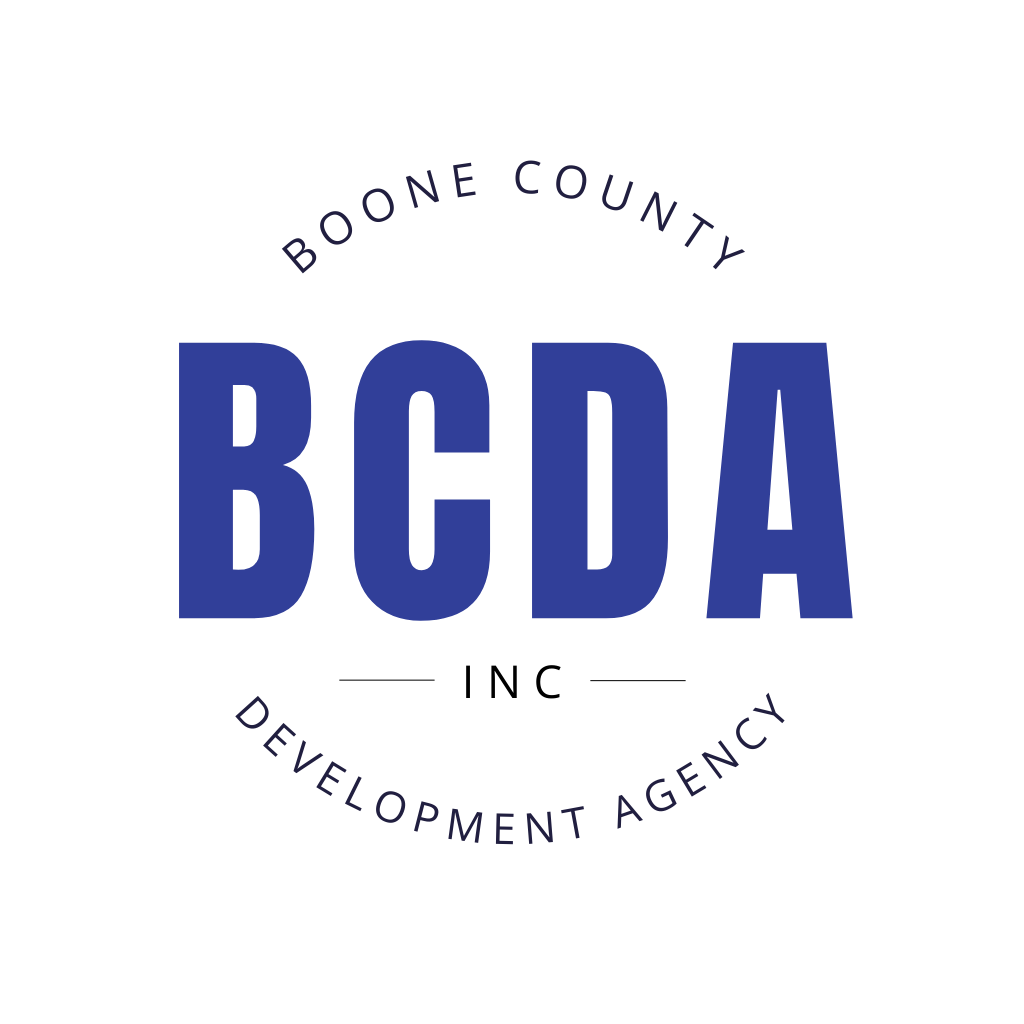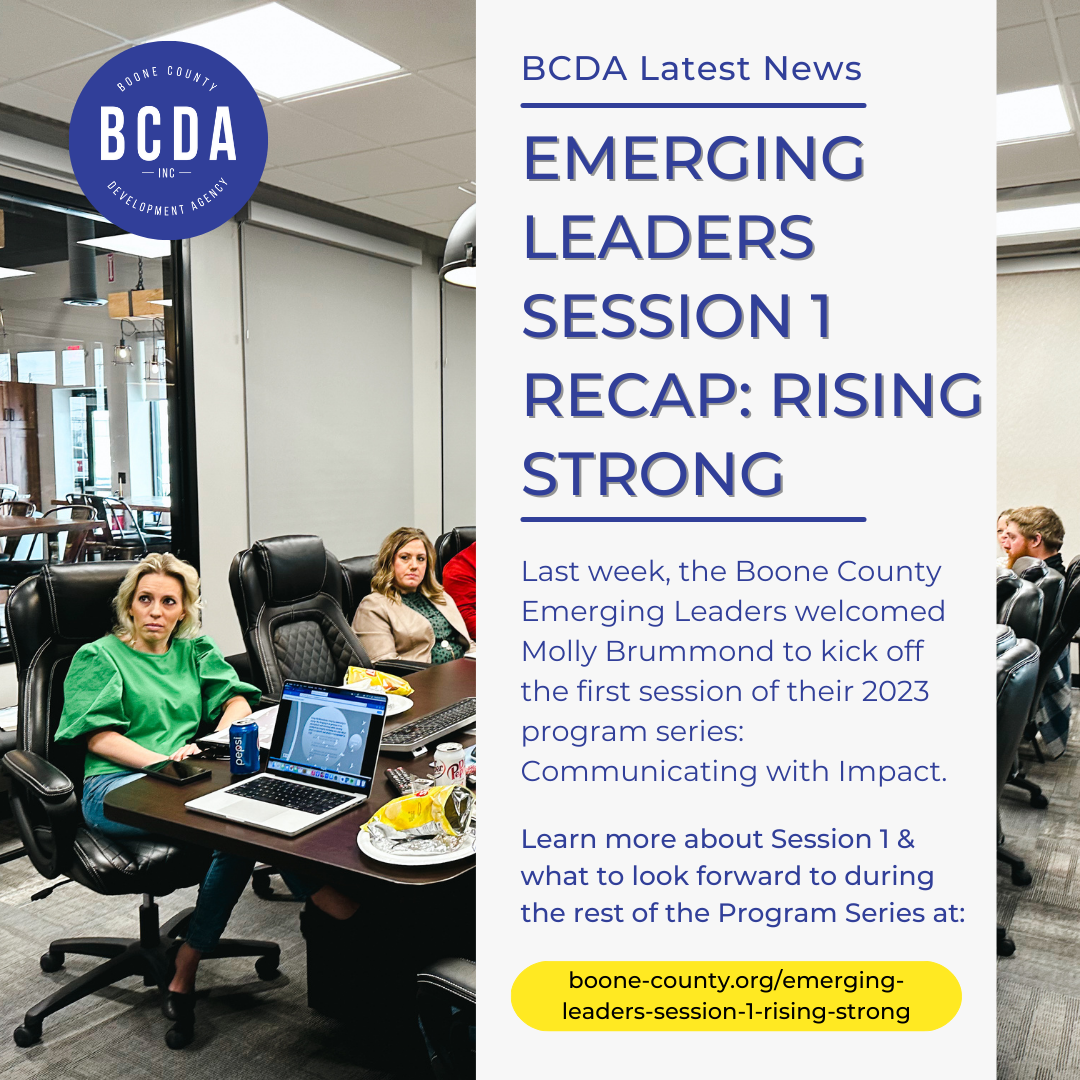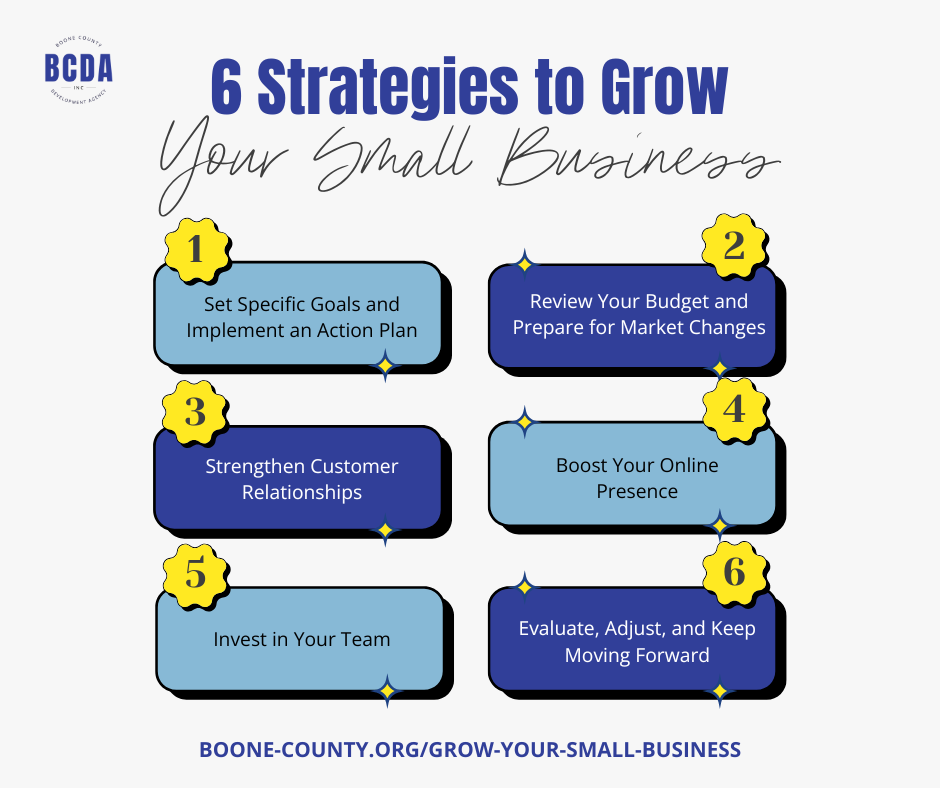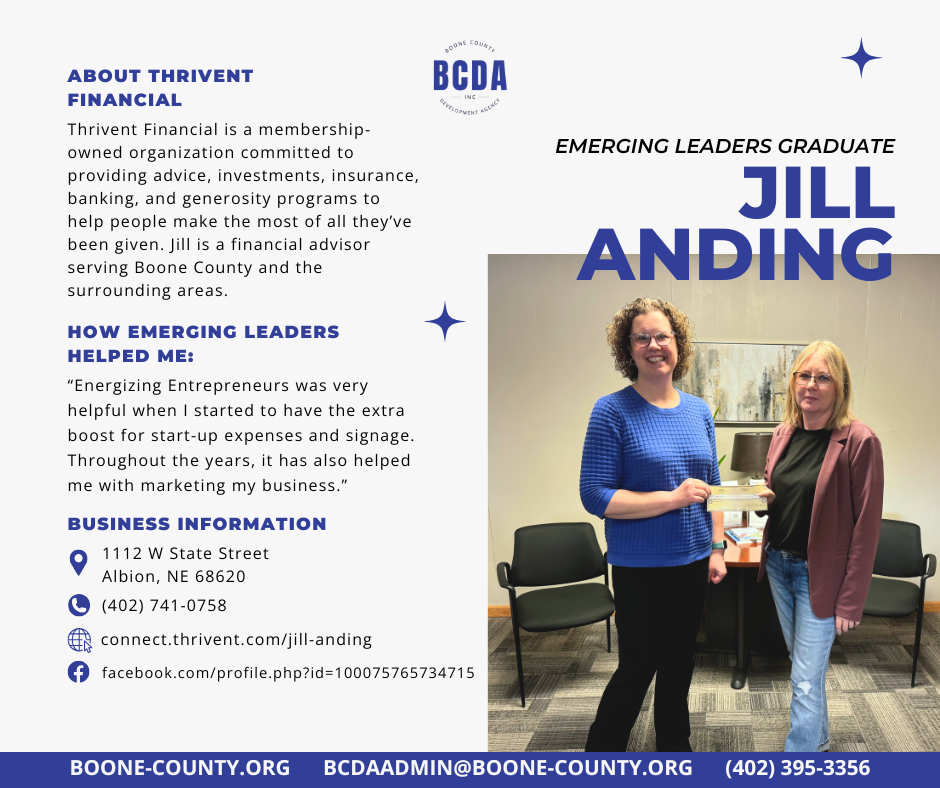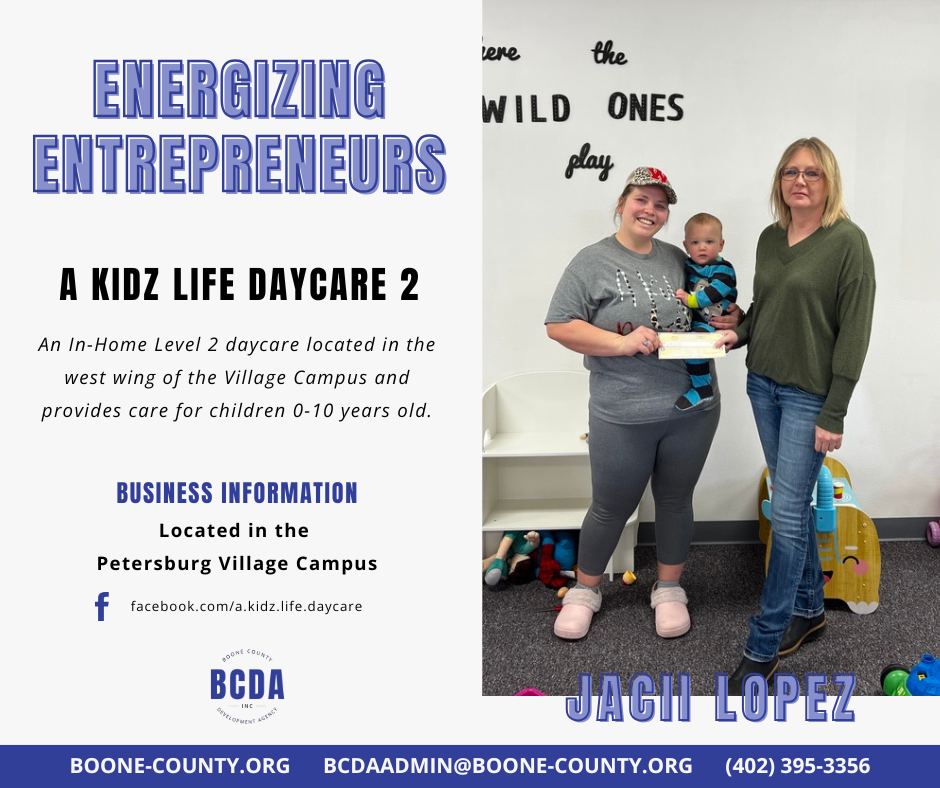Last week, the Boone County Emerging Leaders welcomed Molly Brummond to kick off the first session of their 2023 program series: Communicating with Impact. Brummond is the assistant dean of student development at the University of Nebraska College of Law and has helped countless young adults establish more effective communication skills.
During the Communicating with Impact program series, young adults that live or work in Boone County are invited to learn more about how they can improve communication and how to implement what they learn into their daily lives.
Session 2 of this series, Difficult Conversations: How to Give Feedback with Candor & Kindness will be held Apr 27, 2023, at Black Hills Energy. If you would like to attend this free session, please register here.
In order to start the process of better communication, you must first recognize how your internal dialogue, a.k.a. the stories you tell yourself, affects the way you communicate with the people around you.
How the Stories You Tell Yourself Impact Your Communication
To kick off session 1, participants were encouraged to reckon with their emotions through exercises that help develop an awareness of how their thinking, feelings, and behavior are connected. Addressing these three elements together as part of understanding your emotions is key to creating lasting change.
Once you have developed an understanding of how your emotions are triggered and what they feel/look like, it’s time to get curious about why you react the way that you do.
Understanding Your Story
After the foundation has been established on how to understand your emotions, it’s time to get honest with yourself about the narrative you tell yourself surrounding certain situations. When communicating with others, everything from how you perceive the person to your mood that day comes into play. In order to build healthy communication habits, you must check your narrative to ensure you can communicate from an unbiased, logical place.
Some questions you can ask yourself are:
- What more do I need to learn and understand about the situation?
- What more do I need to learn and understand about the other people in the story?
- What more do I need to learn and understand about myself?
Reality-Check the Narratives You're Telling Yourself For Better Communication
Finally, after you have addressed the emotions behind how you communicate and have dissected how the story you tell yourself likely isn’t based solely on fact, it is time to reality-check how you plan to communicate.
Ask yourself these questions:
- Do you believe that people are doing the best they can? Why or why not?
- How does your response to question one shape your relationships and decisions?
- In what ways could you imagine being more generous in your interpretations of others?
The goal to better understand how your emotions control how you communicate is to take a step back from the situation and look at the whole picture from an unbiased standpoint. It is essential to not let past events or emotional triggers cloud what is reality and what you are telling yourself.
Overview and Session 2
Brummond recommends reading Rising Strong by Brené Brown to gain more clarity on how the stories we tell ourselves directly affect our communication. Be sure to check one of the local Boone County libraries to see if they have this book on their shelves.
If you are interested in learning more about what was discussed in Session 1, please contact our office. To attend Session 2, Difficult Conversations: How to Give Feedback with Candor & Kindness, register today at: https://boone-county.org/emerging-leaders-academy-2/
